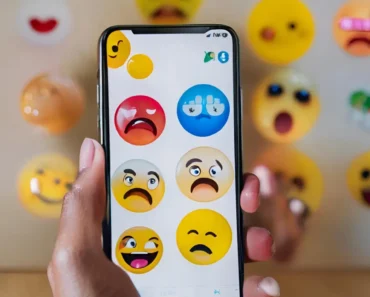This exploration delves into the psychological mechanisms behind why ghosting creates such intense emotional distress, how it differs from traditional breakups, and practical strategies for healing from this modern form of rejection. We’ll examine the lasting effects and provide tools to help you rebuild your confidence and trust in relationships.
The Psychology Behind Why Ghosting Hurts More Than a Breakup
Traditional breakups, while painful, provide something that ghosting never can: closure and understanding. When someone ends a relationship through direct communication, both parties have the opportunity to process what happened, express their feelings, and gain insight into why the relationship ended. This is precisely why ghosting hurts so much more – it denies you this fundamental human need for understanding.
Ghosting creates what psychologists call “ambiguous loss” – a type of grief that occurs when the loss is unclear or incomplete. Your brain struggles to process the sudden disappearance because it lacks the definitive ending that allows for proper emotional processing. This ambiguity keeps you trapped in a cycle of hope, confusion, and self-doubt.
The human brain is wired to seek patterns and explanations for events, especially those that cause emotional distress. When someone ghosts you, your mind races to fill in the blanks, often creating scenarios that are far worse than reality. This mental rumination intensifies the pain and can lead to obsessive thoughts about what went wrong.
Additionally, ghosting attacks your fundamental sense of worth as a human being. A breakup might hurt your feelings about the relationship, but ghosting sends the message that you weren’t even worth a simple explanation or goodbye. This perceived devaluation can be devastating to your self-esteem and confidence in future relationships. The pain runs deeper because ghosting hurts your core sense of dignity and respect.
How Ghosting Differs from Traditional Breakups
Lack of Closure
Traditional breakups, even messy ones, typically involve some form of conversation or explanation. The person ending the relationship might say they need space, aren’t ready for commitment, or simply aren’t feeling the connection anymore. While these conversations are difficult, they provide closure and allow both parties to understand why the relationship ended.
Ghosting eliminates this crucial element of closure entirely. You’re left with questions that may never be answered: Did something happen to them? Did I do something wrong? Were they ever genuinely interested? This lack of resolution can keep you emotionally attached to the situation far longer than a traditional breakup would. The ambiguity is precisely why ghosting hurts with such intensity – your mind cannot properly process an incomplete ending.
The Element of Sudden Abandonment
Breakups usually have warning signs or build-up periods where tension increases or communication decreases gradually. Even when a breakup feels sudden, there are typically underlying issues that both parties were aware of on some level.
Ghosting often happens without any warning whatsoever. One day you’re having normal conversations and making plans, and the next day you’re met with complete silence. This sudden abandonment triggers deep-seated fears of rejection and can feel like a personal attack on your character and worth. The shock factor is another reason why ghosting hurts more intensely than gradual relationship endings.
Impact on Self-Worth
A traditional breakup might make you question the compatibility or timing of the relationship, but it doesn’t necessarily make you question your fundamental worth as a person. The other person took the time to have a difficult conversation with you, showing basic respect for your humanity.
Ghosting sends the opposite message – that you weren’t worth even a brief, uncomfortable conversation. This perceived dismissal of your basic human dignity can be far more damaging to your self-esteem than hearing someone say they don’t think you’re compatible.
Ability to Process and Move Forward
Traditional breakups, while painful, provide a clear endpoint that allows your brain to begin the healing process. You know the relationship is over, you understand (at least partially) why it ended, and you can start working through your emotions with that knowledge.
Ghosting keeps you in a state of emotional suspension. Part of you hopes they’ll return with an explanation, while another part knows deep down that they won’t. This internal conflict prevents you from fully processing the loss and moving forward, extending your emotional suffering significantly.
The Neurological Impact of Being Ghosted
Recent neuroscience research reveals that social rejection activates the same brain regions as physical pain. When you’re ghosted, your brain literally processes the experience as if you’ve been physically injured. The anterior cingulate cortex and right ventral prefrontal cortex light up in brain scans, showing that emotional pain from ghosting creates genuine neurological distress. This scientific evidence explains why ghosting hurts with such physical and emotional intensity.
The uncertainty created by ghosting triggers your brain’s threat detection system, keeping you in a heightened state of anxiety and alertness. Your amygdala – the brain’s alarm system – remains activated as it tries to make sense of the ambiguous situation. This constant state of arousal is exhausting and can lead to physical symptoms like insomnia, loss of appetite, and difficulty concentrating.
Ghosting also disrupts your brain’s reward system. If you had been receiving regular communication and positive interactions from this person, your brain had become accustomed to those dopamine hits. The sudden cessation of this reward creates a withdrawal-like effect, similar to what happens when someone stops using an addictive substance.
The rumination that follows ghosting activates your brain’s default mode network, the same neural pathway involved in depression. Your mind becomes stuck in loops of trying to understand what happened, replaying conversations, and imagining different scenarios. This repetitive thinking pattern can contribute to depressive symptoms and make it difficult to focus on other aspects of your life.
Common Emotional Responses to Being Ghosted
Self-Blame and Rumination
Most people who are ghosted immediately turn inward, wondering what they did wrong. You might replay every conversation, analyze every text message, and scrutinize your behavior during your last interaction. This self-blame is a natural but harmful response that keeps you trapped in negative thought patterns and explains why ghosting hurts for extended periods.
The rumination that follows ghosting can become obsessive, with thoughts about the situation intruding on your daily activities. You might find yourself unable to concentrate at work, having trouble sleeping, or feeling distracted during social activities with friends and family.
Anger and Resentment
After the initial shock and self-blame, many people experience intense anger toward the person who ghosted them. This anger is a healthy response to being treated disrespectfully, but it can become consuming if not properly processed.
The anger often stems from feeling powerless and dismissed. You may fantasize about confronting the person or getting revenge, but these thoughts typically only prolong your emotional suffering and prevent you from moving forward in a healthy way.
Anxiety About Future Relationships
Being ghosted can create lasting anxiety about future romantic connections. You might find yourself constantly worried that new partners will disappear without warning, leading to clingy or anxious attachment behaviors that can actually push people away.
This relationship anxiety can manifest as constantly checking your phone for messages, overanalyzing responses from new partners, or being afraid to fully invest emotionally in new relationships for fear of being hurt again.
Loss of Trust and Cynicism
Repeated experiences with ghosting can lead to a general loss of trust in people’s intentions and words. You might become cynical about dating, assuming that people are inherently selfish or incapable of basic respect and communication.
This cynicism can become a self-fulfilling prophecy, causing you to approach new relationships with suspicion and defensiveness that ultimately sabotages your chances of forming genuine connections with emotionally healthy people.
Why People Choose to Ghost Instead of Breaking Up
Understanding why people ghost doesn’t excuse the behavior, but it can help you realize that their choice to ghost likely has nothing to do with your worth as a person. Most people who ghost are dealing with their own emotional immaturity, fear of confrontation, or inability to handle difficult conversations.
Conflict Avoidance
Many people ghost because they fear the discomfort and potential conflict that comes with ending a relationship directly. They may have grown up in households where difficult conversations were avoided, or they may simply lack the emotional skills needed to navigate breakup conversations compassionately.
For these individuals, ghosting feels like the “easier” option because it allows them to avoid the immediate discomfort of seeing someone hurt. However, this avoidance often stems from their own emotional immaturity rather than any consideration for the other person’s feelings.
Fear of Being the “Bad Guy”
Some people ghost because they don’t want to be perceived as the person who ended the relationship. In their minds, simply disappearing allows them to avoid taking responsibility for the breakup and the pain it causes.
This thinking is fundamentally flawed, as ghosting actually makes them appear far worse than someone who ends a relationship with honesty and respect. However, people who ghost often lack the self-awareness to understand this distinction.
Inability to Articulate Their Feelings
Some individuals ghost because they genuinely don’t understand their own feelings or motivations well enough to explain them to someone else. They may know they want to end the relationship but feel unable to articulate why in a way that would be helpful or meaningful.
Rather than attempting to work through their own emotional confusion, they choose the path of avoidance, leaving you to deal with the consequences of their inability to communicate effectively.
The Long-Term Effects of Being Ghosted
Impact on Future Relationships
Being ghosted can create lasting insecurity about your desirability and worth as a partner. You might find yourself constantly seeking reassurance from future partners or becoming overly anxious when they don’t respond to messages immediately. Understanding why ghosting hurts so deeply can help you recognize these patterns and work to overcome them.
Some people develop what psychologists call “hypervigilance” in relationships, constantly scanning for signs that their partner might be losing interest or preparing to leave. This heightened state of awareness is exhausting and can actually damage otherwise healthy relationships.
Others go in the opposite direction, becoming emotionally guarded and reluctant to fully invest in new relationships. While this approach might protect you from future hurt, it can also prevent you from experiencing the deep connection and intimacy that make relationships fulfilling.
Self-Esteem and Confidence Issues
Ghosting can create lasting damage to your self-esteem, particularly if it happens repeatedly or during vulnerable periods in your life. You might begin to believe that you’re fundamentally unlovable or that there’s something inherently wrong with you that drives people away.
These negative self-beliefs can become self-fulfilling prophecies, affecting not just your romantic relationships but your friendships, professional relationships, and overall quality of life. Low self-esteem can lead to settling for treatment that’s beneath what you deserve or avoiding opportunities for fear of rejection.
Trust and Attachment Issues
Repeated experiences with ghosting can fundamentally alter your attachment style and ability to trust others. You might develop what psychologists call “disorganized attachment,” where you simultaneously crave closeness while fearing abandonment.
This internal conflict can make it difficult to form secure, stable relationships. You might push people away when they get too close, or become clingy and anxious when you sense any distance in the relationship. These patterns can be challenging to break without conscious effort and sometimes professional support.
Related Posts: Mental Health Red Flags in Digital Conversations
Healing Strategies After Being Ghosted
Recovery from being ghosted requires a different approach than healing from a traditional breakup. Because you lack closure and clear answers, you need to create your own sense of resolution and meaning from the experience. Acknowledging that ghosting hurts differently than other forms of rejection is the first step toward proper healing.
Accept the Lack of Closure
One of the most important steps in healing from being ghosted is accepting that you may never get the answers you’re seeking. This acceptance doesn’t mean you approve of how you were treated, but rather that you’re choosing to stop waiting for closure that may never come.
Create your own closure by writing a letter to the person who ghosted you (that you never send), expressing everything you wish you could say. This exercise can help you process your emotions and create a sense of completion without needing their participation.
Practice shifting your focus from “Why did they ghost me?” to “What can I learn from this experience?” This reframe helps you reclaim your power and find meaning in the situation, even without their explanation.
Challenge Negative Self-Talk
Being ghosted often triggers harsh self-criticism and negative self-talk. Pay attention to the stories you’re telling yourself about why you were ghosted and challenge thoughts that blame yourself or attack your self-worth.
Remember that someone’s decision to ghost you says far more about their character and emotional maturity than it does about your worth as a person. A emotionally healthy person who simply wasn’t interested would communicate that respectfully rather than disappearing without explanation.
Practice self-compassion by treating yourself with the same kindness you would show a friend going through the same experience. Acknowledge that being ghosted is genuinely painful and that your hurt feelings are completely valid.
Rebuild Your Sense of Self-Worth
Ghosting can shake your confidence in your own value and desirability. Actively work to rebuild your self-esteem by engaging in activities that make you feel good about yourself and remind you of your positive qualities.
Spend time with friends and family members who appreciate and value you. Their consistent presence and positive regard can help counteract the negative messages that ghosting sends about your worth.
Focus on personal growth and self-improvement, not to become more attractive to potential partners, but to strengthen your relationship with yourself. When you have a solid foundation of self-worth, others’ actions have less power to devastate you.
Protecting Yourself from Future Ghosting
While you can’t completely prevent being ghosted, you can take steps to minimize its likelihood and reduce its impact when it does happen. The key is developing stronger boundaries and better recognition of red flags in early dating stages.
Recognize Early Warning Signs
People who are likely to ghost often show subtle signs of emotional unavailability or poor communication skills early in the relationship. Pay attention to inconsistent communication patterns, reluctance to make concrete plans, or difficulty engaging in deeper conversations about feelings or the future.
Notice how they handle minor conflicts or disagreements. Someone who avoids addressing small issues directly is more likely to use avoidance as a strategy for ending the relationship entirely.
Be wary of people who seem to compartmentalize their life extensively, never introducing you to friends or family, or being secretive about their daily activities. While everyone deserves privacy, excessive secrecy can indicate someone who isn’t integrating you into their life in a meaningful way.
Maintain Your Own Life and Interests
One of the best protections against the devastating effects of ghosting is maintaining a rich, fulfilling life that doesn’t depend entirely on romantic relationships. When you have strong friendships, engaging hobbies, and personal goals, the sudden loss of one person, while still painful, doesn’t completely destabilize your world.
Avoid putting all your emotional eggs in one basket, especially in the early stages of dating. Continue nurturing other relationships and pursuing your own interests, even when you’re excited about someone new.
This approach isn’t about being emotionally distant or unavailable, but rather about maintaining a healthy balance that protects your well-being and makes you a more interesting, independent partner.
When to Seek Professional Help
While being ghosted is a common experience that most people can work through on their own, sometimes the impact is severe enough to warrant professional support. Recognizing when you might benefit from therapy can help you heal more effectively and prevent long-term relationship issues.
Consider seeking professional help if you find yourself unable to move past the experience after several months, if being ghosted has triggered or worsened depression or anxiety symptoms, or if you’re finding it impossible to trust or connect with new people.
A therapist can help you process the experience in a healthy way, challenge negative thought patterns that might be keeping you stuck, and develop strategies for building healthier relationships in the future. They can also help you identify any underlying attachment issues or self-esteem problems that might make you more vulnerable to the devastating effects of ghosting.
Remember that seeking therapy doesn’t mean you’re weak or damaged – it means you’re taking proactive steps to protect your mental health and improve your relationships. Many people find that working through the experience of being ghosted with a professional actually helps them develop stronger relationship skills and better boundaries for the future.
Moving Forward with Wisdom and Strength
Understanding why ghosting hurts more than a breakup can help validate your pain and guide your healing process. The unique psychological challenges created by ghosting – the lack of closure, the attack on your self-worth, and the ambiguous loss – create a different type of emotional wound that requires specific healing strategies.
Remember that being ghosted is not a reflection of your worth as a person or your desirability as a partner. It’s a reflection of the other person’s inability to communicate respectfully and handle difficult conversations with maturity. While this knowledge doesn’t eliminate the pain, it can help you avoid taking their behavior personally.
Use this experience as an opportunity to strengthen your sense of self-worth, improve your ability to recognize red flags in future relationships, and develop better boundaries that protect your emotional well-being. The pain of being ghosted is real and valid, but it doesn’t have to define your future relationships or your belief in your own worth.
With time, self-compassion, and possibly professional support, you can heal from this experience and enter future relationships with greater wisdom, stronger boundaries, and a clearer understanding of the respect and communication you deserve from potential partners.
Frequently Asked Questions
How long does it take to get over being ghosted?
The healing timeline varies greatly depending on the depth of the connection, your attachment style, and previous experiences with rejection. Most people begin feeling significantly better within 2-3 months, but some effects on trust and self-esteem may take longer to fully resolve. The key is actively working through your emotions rather than simply waiting for time to pass.
Should I reach out to someone who ghosted me for closure?
Generally, it’s best to resist the urge to reach out for closure. People who ghost have already demonstrated their unwillingness to communicate respectfully, and pursuing them often leads to further hurt or disappointment. Instead, focus on creating your own closure through self-reflection, journaling, or talking with trusted friends or a therapist.
Is ghosting ever acceptable in dating situations?
Ghosting is generally not acceptable after you’ve had meaningful conversations or spent time together in person. However, it may be understandable after just one or two brief online exchanges where no real connection was established. Once you’ve invested time in getting to know someone, basic respect requires some form of communication if you want to end contact.
How can I tell if someone is likely to ghost me?
Warning signs include inconsistent communication patterns, reluctance to make concrete plans, avoiding deeper conversations about feelings or intentions, compartmentalizing their life excessively, and showing poor communication skills when handling minor disagreements. Trust your instincts if someone seems emotionally unavailable or uncommitted to clear communication.
Can being ghosted repeatedly indicate something about me?
While being ghosted is primarily about the other person’s character and communication skills, repeated experiences might suggest examining your partner selection patterns or early dating behaviors. Consider whether you’re attracted to emotionally unavailable people, moving too fast physically or emotionally, or not paying attention to red flags. A therapist can help you explore these patterns constructively.






Can you be more specific about the content of your article? After reading it, I still have some doubts. Hope you can help me.